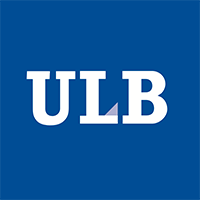 101-150
101-150 


In the heart of Europe, just 1h20 by train from Paris, 1h30 from Amsterdam, and 1h50 from London and Cologne, the city of Brussels offers all the advantages of a capital city and the quality of life of a large and lively town. As a multicultural university with one third of students and researchers from abroad, international relations is a daily reality for the Universit®¶ libre de Bruxelles, just like the city of Brussels itself, one of the world's most cosmopolitan cities. Its outward-looking position with regard to Europe and the world has resulted in a number of agreements, collaborations and special partnerships being set up with some of the world's top universities. Four Nobel Prizes, one Fields Medal, three Wolf Prizes and two Marie Curie Prizes are further evidence of the University's longstanding tradition of excellence. The Universit®¶ libre de Bruxelles is an active member of the Research Area and is involved in almost 80 projects financed by the 6th and 7th European Framework Programmes. Over the past few years, it has obtained 7 starting Grants from the European Research Area (ERC) to finance research in Medicine, Economics, Mathematics, Sociology, or Political Science, as well as 2 Advanced Grants in Artificial Intelligence and Physics. In addition, the University's Institute for European Studies is recognized as a °įJean Monnet European research centre°Ī for its work on European integration. The Universit®¶ libre de Bruxelles has 13 faculties, schools and specialized institutes that cover all the disciplines, closely combining academic input and research. It offers almost 40 undergraduate programs and 235 graduate programs. It also partners 20 Doctoral schools, with almost 1,600 PhDs in progress. One of the University's main aims is to give its students a solid foundation in critical thinking as well as a taste for research, while at the same time catering to the needs of new publics. As a French-speaking university, most of the courses at the Universit®¶ libre de Bruxelles are delivered in French. However, a growing number of Masters programs are partly or entirely delivered in English. The University offers a wide range of French courses, prior to and during the academic year, to help its international students improve their language skills. The Universit®¶ libre de Bruxelles has developed a large spectrum of students upport initiatives: e.g., financial and psychological support, guidance, French classes, etc. Since its foundation in 1834, the Universit®¶ libre de Bruxelles has been closely involved in the ongoing debate on critical thinking and freedom. This has included outspoken opposition to dictatorships and other nationalist abuses, the promotion of equal opportunities and a raft of other social issues. Based on the principle of free enquiry that postulates independent reasoning and the rejection of all dogma, the University has retained its original ideals as a free institution that is firmly engaged in the defence of democratic and human values. More on http://www.ulbruxelles.be/ulb/presentation/uk.html
 101-150
101-150 
| Subject | Rank |
|---|---|
Physics | 40 |
Statistics | 51-75 |
Public Health | 101-150 |
Medical Technology | 101-150 |
Political Sciences | 101-150 |
Oceanography | 151-200 |
Public Administration | 151-200 |
Earth Sciences | 201-300 |